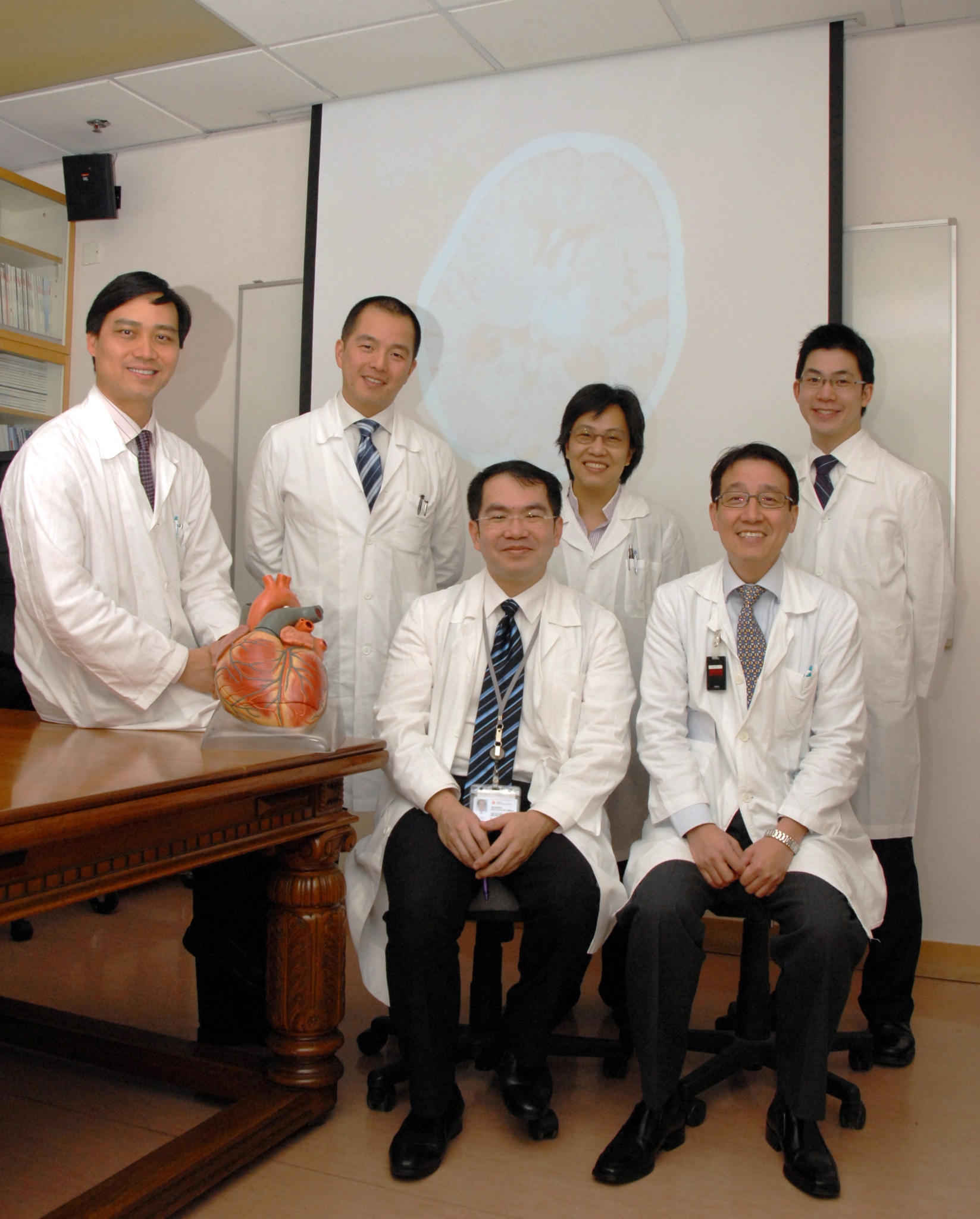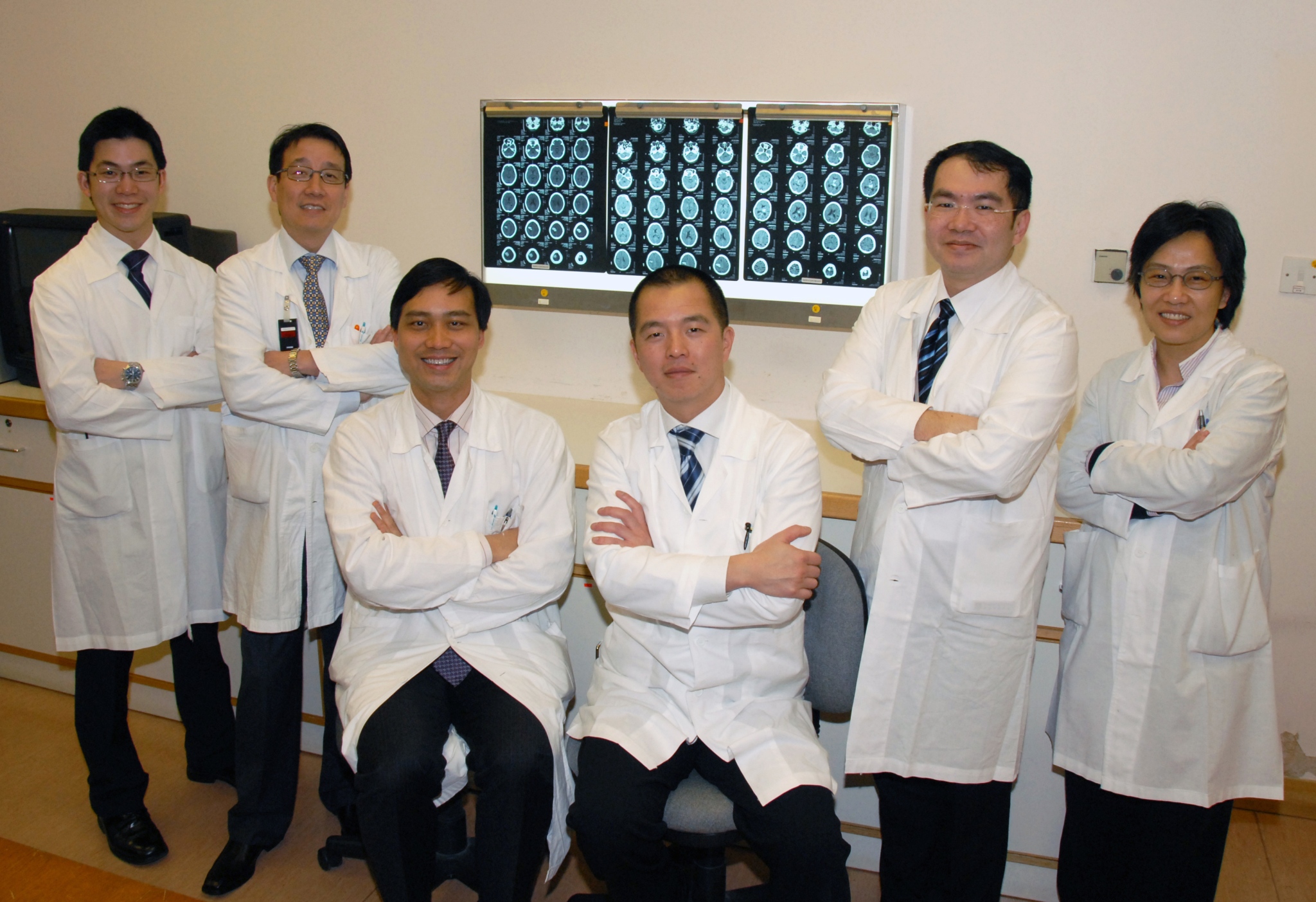Media
HKU Study Finds Aspirin Treatment for Cardiovascular Disease in Chinese Does Not Increase the Risk of Recurrent Intracranial Haemorrhage
05 Mar 2012
Aspirin is commonly used in the treatment of cardiovascular diseases such as coronary artery disease, ischemic stroke, and peripheral artery disease. However, it is an anti-platelet agent and thus may cause bleeding. As a result, it is often considered ‘unsafe' for patients who have had a previous intracranial haemorrhage (ICH). ICH and cardiovascular diseases share common risk factors, resulting in a treatment dilemma in those with previous ICH but who need aspirin for the treatment of cardiovascular disease.
A recent study conducted by researchers from The University of Hong Kong Li Ka Shing Faculty of Medicine found that aspirin given for the treatment of cardiovascular diseases in Chinese patients with previous ICH did not increase the risk of recurrent ICH. Furthermore, its use reduced the overall incidence of subsequent stroke and heart attack. The findings provide important insight for doctors faced with the treatment dilemma, and may change their prescribing practice. The results of this study have just been published in the scientific journal - Thrombosis and Haemostasis.
Investigators of the study advised that doctors should base on the clinical indications to decide whether to prescribe aspirin to post-ICH patients with cardiovascular disease, and at the same time closely monitor the response of the patient so as to attain better treatment outcomes.
About the study
Old age, smoking, hypertension and diabetes are all risk factors of ICH. They are also risk factors for cardiovascular diseases like coronary artery disease, ischemic stroke and peripheral arterial disease. It is therefore not an uncommon scenario that some patients may have previous ICH as well as a cardiovascular disease affecting the heart, brain or limb vessels.
Treatment of these cardiovascular diseases often involves aspirin to prevent blood clot formation. Failure to do so may result in heart attack, ischemic stroke, limb amputation or even death. However, in the advent of a previous ICH, doctors are faced with a difficult situation and are often hesitant to prescribe aspirin due to fear of another bleeding event within the brain. Therefore, HKU researchers underwent the study to investigate the clinical outcomes of use of aspirin in these post-ICH patients.
Research Methodology
440 adult patients with ICH who were admitted to the neurosurgical ward of Queen Mary Hospital (the teaching hospital of HKU) in Hong Kong from May 1996 to February 2010 were studied. Patients had ICH secondary to trauma, arterio-venous malformation, aneurysm, tumour, haemorrhagic transformation of an ischemic stroke or passed away within 30 days of admission were not included into this study. In average, each patient was followed up for 5 years.
All patients were followed-up regularly in the outpatient clinic of Queen Mary Hospital. The clinical data on the subsequent use of aspirin, recurrent ICH, development of major adverse cardiovascular events (e.g. acute coronary syndrome, ischemic stroke) and death during the follow-up period was noted.
Major results
Among the 440 patients, a total of 127 patients (29%) subsequently developed indications of cardiovascular diseases such as atrial fibrillation, coronary artery disease, and/or ischemic stroke which require the prescription of aspirin during the follow-up period. Of them, 56 patients (44%) were prescribed with aspirin.
It is found that ICH recurrence rate in the patients prescribed with aspirin are similar to that of those who did not receive aspirin (2.3% vs 2.2% per year). In addition, for those who were prescribed with aspirin, there was an overall 50% reduction of stroke and heart attack than those who did not receive aspirin.
Recommendations
Based on the conclusions of this study, Dr David SIU Chung-wah, Clinical Associate Professor, Department of Medicine, The University of Hong Kong Li Ka Shing Faculty of Medicine says, "The result reveals that aspirin use is not noted to be a risk factor of developing a recurrent ICH. Aspirin is protective against ischemic events and clinicians should consider prescribing aspirin to patients with standard indications despite a history of ICH."
In some ICH patients, neurosurgery would be needed to extract the blood clot. Dr Gilberto LEUNG Ka-kit, Clinical Assistant Professor Department of Surgery, The University of Hong Kong Li Ka Shing Faculty of Medicine adds, "Whilst the risk of recurrent ICH is similar between patients prescribed aspirin and those not prescribed aspirin, in case of recurrent ICH, the risk of neurosurgical procedure for these patients is increased due to an impaired blood clotting mechanism. Doctors taking care of patients with previous ICH should pay special attention to control various cardiovascular risk factors particularly hypertension in order to minimize this risk."
About the research team
The study was jointly performed between the Divisions of Cardiology, Neurosurgery and Neurology of The University of Hong Kong Li Ka Shing Faculty of Medicine. The study was led by Dr David SIU Chung-wah, Clinical Associate Professor of Department of Medicine and Dr. Jenny PU Kan-suen, Honorary Clinical Assistant Professor of Department of Surgery. Other researchers include Dr LUI Wai-man, Honorary Clinical Associate Professor and Dr Gilberto LEUNG Ka-kit, Clinical Assistant Professor of Department of Surgery; Dr CHAN Koon-ho and Dr Gary LAU Kui-kai, Clinical Assistant Professors of Department of Medicine.
About intracranial haemorrhage and ischemic stroke
Stroke is a major cause of death and disability and affects more than 20,000 Hong Kong people every year. Amongst Hong Kong Chinese, ‘haemorrhagic stroke', which is a stroke due to bleeding within the brain, accounts for up to 35% of all strokes, while the rest are ischemic strokes. This is different from Caucasian population, in which haemorrhagic stroke accounts for around 15% of all strokes.
Patients' age and overall medical health condition play an important role in determining survival and morbidity after an episode of ICH. The management of ICH involves medical therapy to control blood pressure and reduce intracranial pressure.


